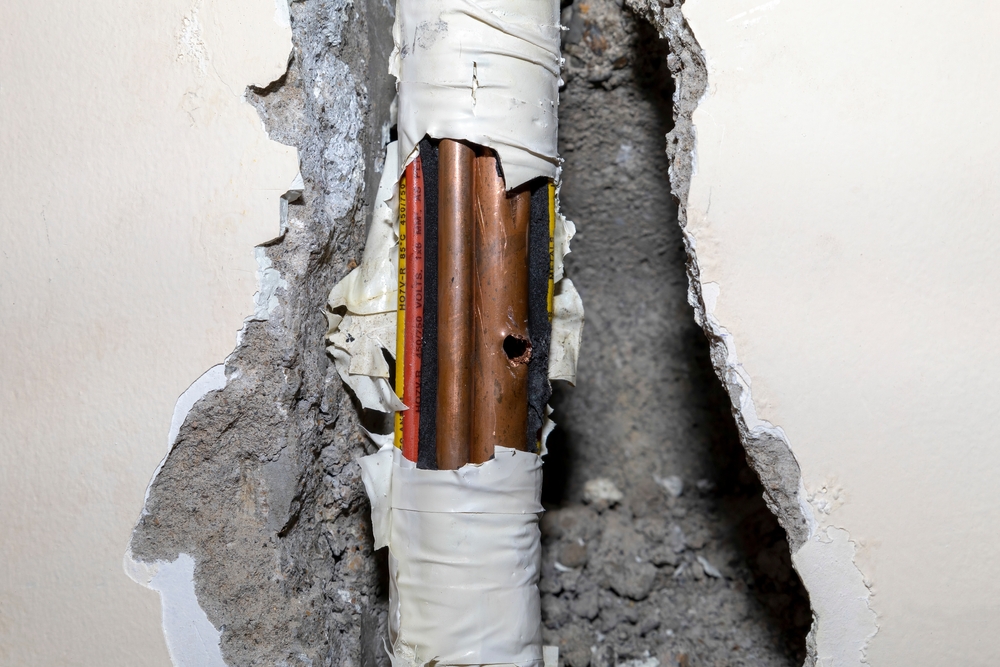Industrial plumbing systems are intricate networks designed to manage substantial water needs and waste products. When operating optimally, these systems underpin the smooth functioning of commercial, industrial, and high-rise residential buildings. However, they can be beset by various problems, often requiring the services of an industrial plumber or, in dire circumstances, an emergency plumber. This article will delve into the ten most common causes of industrial plumbing issues and how to prevent them.
Pipe Corrosion
Over time, pipes corrode due to exposure to water and air, causing leaks, blockages, and water discoloration. This can be avoided by regular checks by an industrial plumber and opting for corrosion-resistant piping during installations. When pipe corrosion is evident, a pipe replacement may be necessary.
Scale Build-up
Hard water leaves mineral deposits on pipe interiors, causing scale build-up that can restrict water flow or lead to pipe damage. Water softeners or conditioners can help to counteract this issue, along with professional descaling services.
Misaligned Pipes
Shifting ground or poor installation can lead to misaligned pipes, causing leaks or water backups. Regular inspections and adherence to proper installation procedures can prevent this issue.
Clogged Drains
Industrial establishments produce large amounts of waste, often leading to clogged drains. Regular drain cleaning and employee education about what can be disposed of down the drain can mitigate this problem.
Leaking Fixtures
Even minor leaks can cause significant water loss over time. Routine maintenance and prompt repair by an industrial plumber can help avoid this issue.
Improper Installation
If plumbing systems aren’t correctly installed, it can lead to multiple problems, including leaks, inefficient water flow, or premature system failure. Always use a reputable and experienced industrial plumber for installations.
Outdated Infrastructure
Aging plumbing systems are more prone to problems due to wear and tear. Regular maintenance and timely upgrades are crucial to prevent plumbing issues associated with outdated infrastructure.
High Water Pressure
Excessive water pressure can damage pipes and fixtures, leading to leaks or even pipe bursts. Installing pressure regulating devices and regular pressure checks can help manage this.
Sewer System Backup
Blockages or damage in the sewer system can lead to backups, causing significant disruptions and potential health hazards. Regular sewer line inspections and maintenance by an emergency plumber can prevent this.
Temperature Changes
Extreme temperature fluctuations can cause pipes to expand or contract, leading to cracks or bursts. Insulation of exposed pipes and the use of temperature-resistant materials can mitigate this issue.
Expert Tips
Preventing industrial plumbing issues primarily involves proactive maintenance and timely intervention. A comprehensive maintenance plan should be in place, conducted by an experienced industrial plumber. They can identify potential issues early, preventing minor problems from escalating into large-scale disruptions.
In the event of severe issues, such as pipe bursts or sewer backups, having a reliable emergency plumber on speed dial is invaluable. They can provide swift, expert intervention to mitigate damage and restore system functionality.
Moreover, employee education can go a long way in preventing common plumbing issues. Ensuring that staff are aware of what can and cannot be disposed of down drains, how to identify early signs of leaks, and the importance of reporting issues promptly can help maintain the integrity of the plumbing system.
Lastly, investing in quality plumbing materials and professional installation services will pay off in the long run. While it might be tempting to cut costs initially, poor-quality materials and installations can ultimately cause frequent and costly repairs down the line.
In conclusion, industrial plumbing problems can be disruptive and costly, but most can be avoided with preventative measures. Regular maintenance, professional installations, and prompt repairs, all performed by experienced industrial and emergency plumbers, can help keep the plumbing system in optimal working condition, supporting the smooth operation of commercial, industrial, and high-rise residential buildings.

